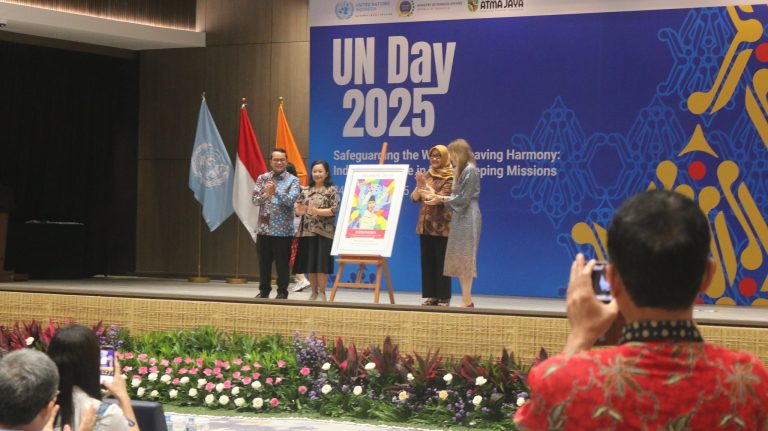
Jakarta — At an event marking 75 years of the United Nations’ presence in Indonesia and the 80th anniversary of the UN’s founding, the United Nations Office on Drugs and Crime (UNODC) reaffirmed its commitment to helping Indonesia combat wildlife trafficking.
Erik van der Veen, UNODC Head of Office for Indonesia and Malaysia and Liaison to ASEAN, on Friday, October 24, said the organisation works closely with member states to strengthen law enforcement capacity in tackling crimes such as the trafficking of protected wildlife.
“At the UNODC, we work with member states around the world to address a wide variety of crime types, including the trafficking of wildlife. What we do with Indonesia and other countries is support law enforcement and prosecutors in identifying, investigating, and prosecuting these cases,” van der Veen told reporters.
He stated that wildlife crime is often complex and requires specialised expertise. “It’s not necessarily always obvious what wildlife crime is. It requires specialised skills for frontline officers, such as police and customs, to identify what is protected and not allowed to cross borders. So we do a lot of training with our government counterparts,” he said.
In May, Thai authorities arrested a man attempting to smuggle two infant orangutans, following a joint investigation by the UNODC and the U.S. Fish and Wildlife Service. The case underscored the ongoing threat of illegal wildlife trafficking in Southeast Asia. Orangutans, which are native to Indonesia, are listed under Appendix I of the Convention on International Trade in Endangered Species of Wild Fauna and Flora (CITES), meaning they are among the most critically protected species due to their risk of extinction.
Van der Veen noted that as biodiversity faces mounting pressure, protecting what remains has become increasingly urgent. “Indonesia is a crucial partner in that regard—we have a very established cooperation,” he added.
He also highlighted one of the key challenges in tackling wildlife trafficking: “Getting a grip on how criminal organisations traffic wildlife—knowing from where to where it goes—and ensuring authorities can intervene when needed remains a major challenge.”
The statement came as part of the broader commemoration “Safeguarding the World, Weaving Harmony: Indonesia’s Role in Peacekeeping Missions” held at Atma Jaya Catholic University, Jakarta, celebrating Indonesia’s 75 years of partnership with the UN and the organisation’s 80th anniversary.
The event, co-hosted by Indonesia’s Ministry of Foreign Affairs and the UN in Indonesia, highlighted Indonesia’s enduring commitment to peacekeeping, multilateralism, and global cooperation. It also featured the launch of commemorative stamps and tokens symbolising seven decades of Indonesia-UN collaboration, and underscored Indonesia’s leadership as the world’s fifth-largest contributor to UN peacekeeping forces. (nsh)
Banner photo: Launch of commemorative stamps at the UN Day 2025 event, in collaboration with the Ministry of Foreign Affairs of Indonesia and Catholic University Atma Jaya. Friday, 24 October 2025. (Source: UN Information Centre/Kevin Surya Setiadi)















